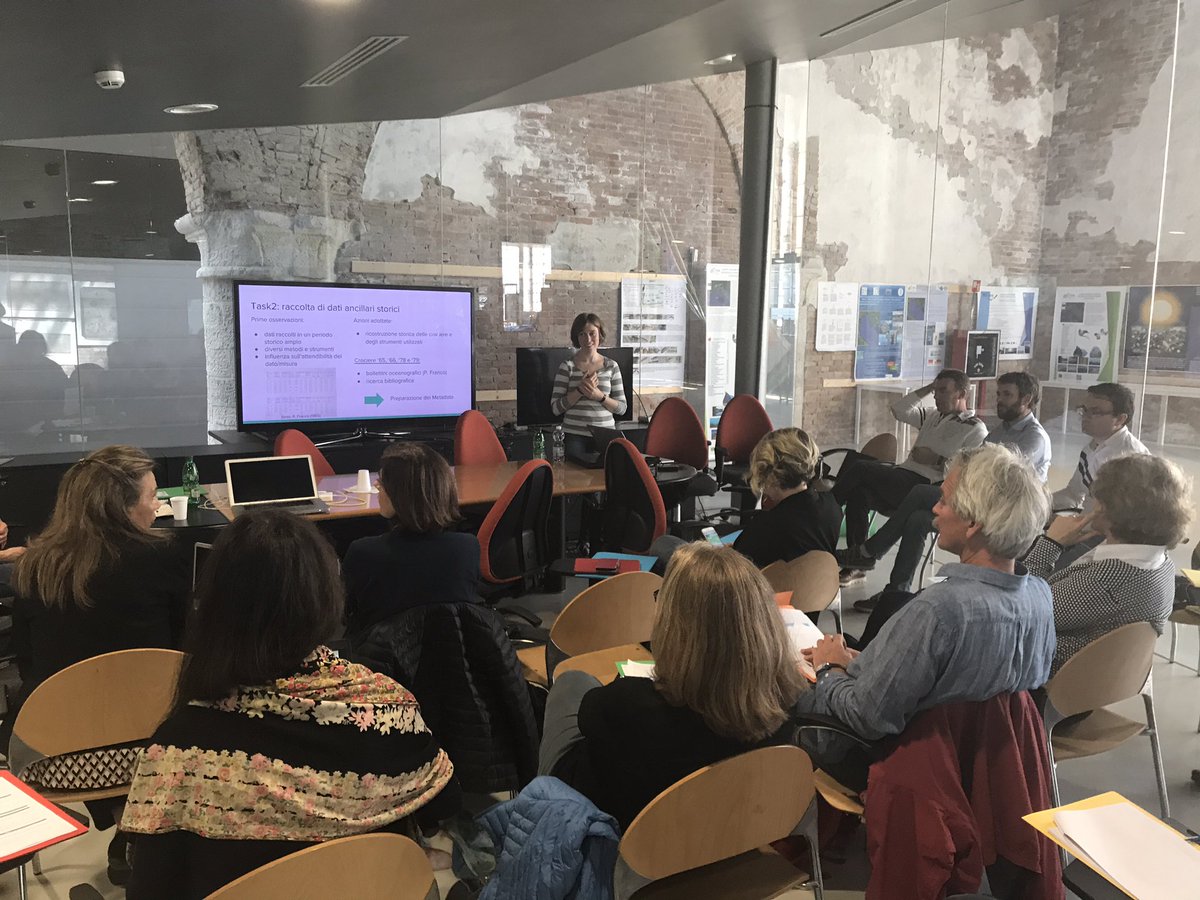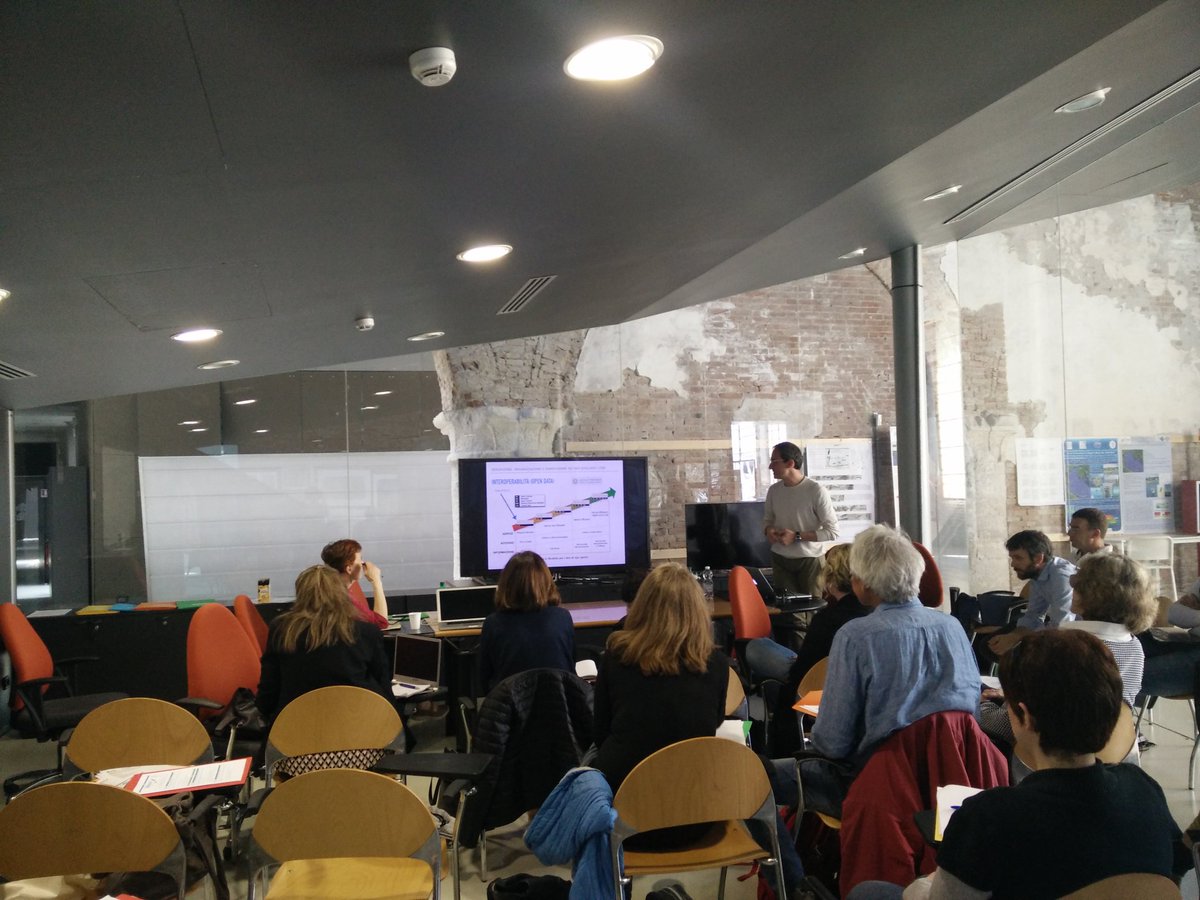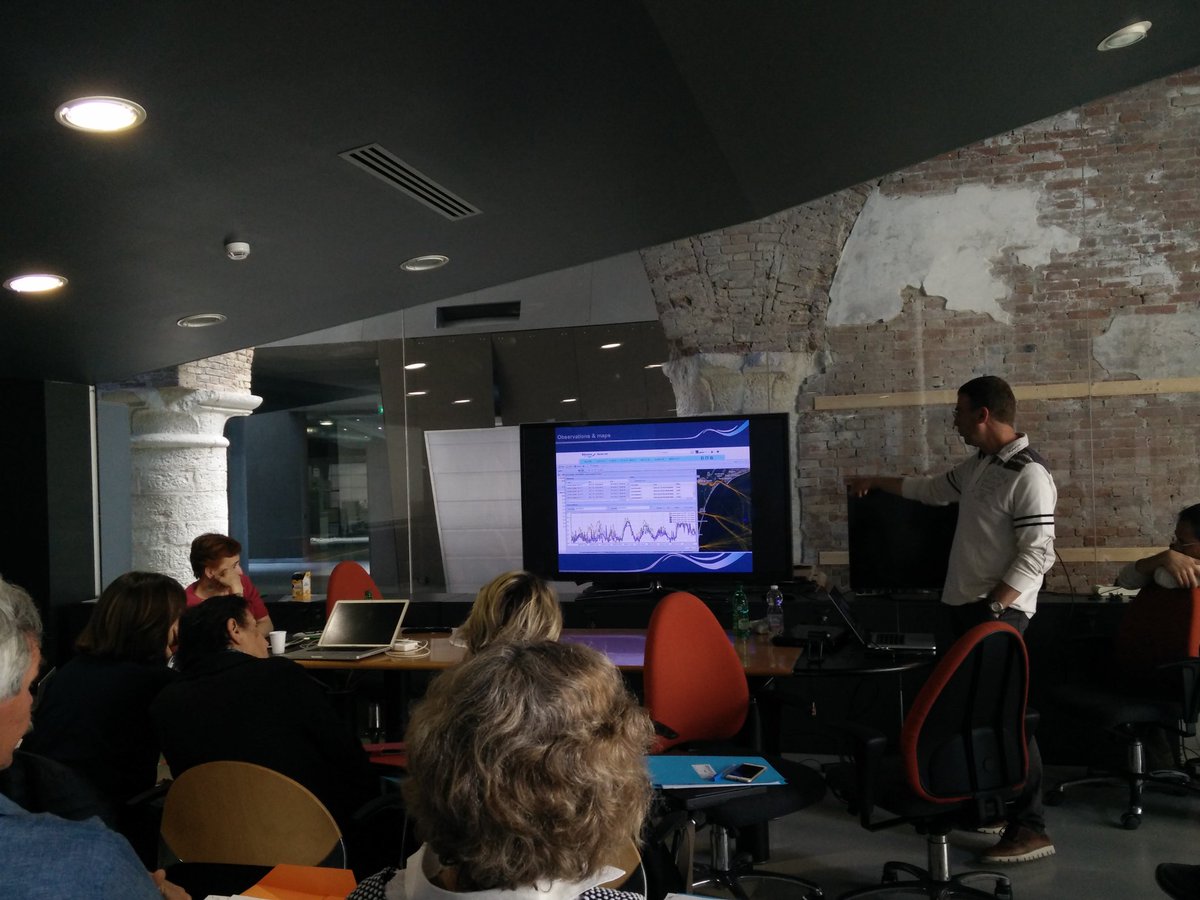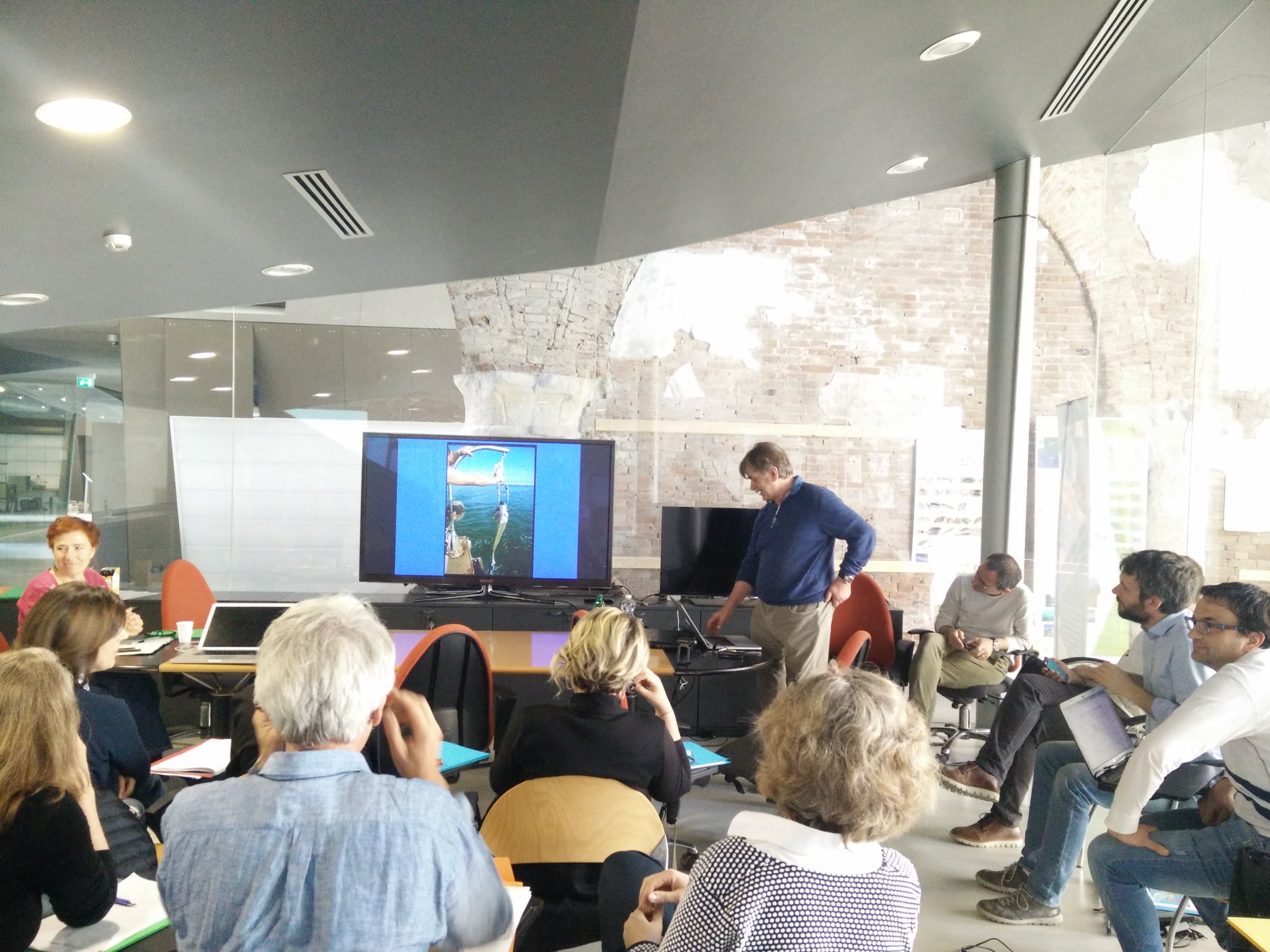Workshop on ecological marine long term data and the Open Science in Venice
A workshop on LTER (Long Term) ecological marine data took place in Venice on April the 10th at the Institute for Marine Sciences of the National Council of Research CNR-ISMAR. The workshop was addressed to all the researchers involved in the RITMARE flagship project and, more specifically, relies on the subproject 7: “Data Management”.
Researchers from different insistutions attended the workshop:
- CNR-ISMAR Venice,
- CNR-IREA Milano,
- CNR-ISMAR Bologna,
- CNR-ISMAR Ancona,
- OGS-OCE Trieste,
- Stazione Zoologia Anthon Dohrn.
Each research group involved reported his experience, state of the art and future perspectives for the opennes of LTER ecological data. Each one of the above mentioned institutions holds a large amount of data, technical infrastructure and instruments that generally allows to open its own research. This day was organised by CNR-ISMAR of Venice in order to sensitize other researchers on the importance of Open Science in ecological marine field. Another aim was to propose a sample project lifecycle based on the abiotic, phyto and zooplancton data collected in the Northern Adriatic area since 1965. This data represent in full an example of long term ecological data and the database is stil reasonably small to let the researchers decide about its evolution and sharing techniques.
The program of the day is reported below: A brief intro given by Alessandra Pugnetti concerned the reasons and the themes of research which involve all the present institutions and their cooperation. The morning (10:00-13:00) was articulated in six brief communications given by the WP2 of RITMARE project (“data” line) and pointed the focus on managing, sharing and the visibility of LTER ecological data on Northern Adriatic area.
- The first part of the workshop presented some generical concepts related to Open Science, Open Access Open Data and Open Source. Then, an idea of what an open project lifecycle looks like was given by [Alessandro Sarretta][Sarretta].
- In the second part a more deepen study on the developement of the research project lifecycle was given. The project involves data from the Norther Adriatic observatory. Some fundamental tasks have been individuated (Annalisa Minelli).
- The third part concerned a more detailed and fascinating focus on the origin of LTER marine ecological data at CNR-ISMAR. Collection, analysis techniques and methods were presented focusing on their evolution in time ([Giorgio Socal][Socal]).
- The fourth intervention was about the collection of ancillary data in order to evaluate the data realiability and to prepare historical data for a proper metadatation. The data harmonisation task is also afforded here (Annalisa Minelli).
- The fifth communication affords the themes of data description, organisation and sharing. Information about data interoperability and harmonisation following italian, european and international guidelines were given and some example were showed by [Alessandro Oggioni][Oggioni].
- In the sixth communication [Mauro Bastianini][Bastianini] presented the past experiences and actual infrastructure used to manage and visualize ecological long term data and geographical marine data. Sensors are identified and described and each dataset has attached metadata INSPIRE compliant.
The afternoon was dedicated to the presentation of state of the art and results from the others two lines of RITMARE project:
- The WP1 line works concern the definition structure and objectives of an ecological observatory, with a specific focus on the North Adriatic Observatory. [Adriana Zingone][Zingone] held a communication about the aims, requirements and structure of an ecological observatory defining principal themes afforded and possible users, data type and minimum infrastructures required.
- The WP3 line works concern the use of data from the observatory and [Maria Lipizer][Lipizer] presented a case study related to the observatory in the Trieste gulf. Observation infrastructure have been presented and a discussion about their eventual empowerment arose. Then, some synthetic indexes have been formulated in order to evaluate the general environmental status. Stakeholders interests have also been taken into account.
During the whole workshop exchange between participant was encouraged. A poll has been made to taste the degree of confiance of each particpant with the themes of Open Science, free questions and impression were also encouraged.
Photos of the event:



